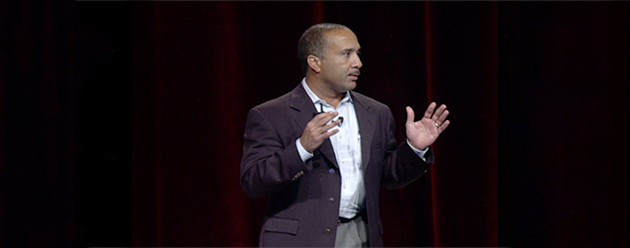
The Crucial Role of Colleague Development in Organizational Performance: An Editorial by Clint Lewis
January 15, 2019
Clint Lewis, EVP and Group President, International Operations, Commercial Development, Genetics, Aquatic Health and Human Medical Diagnostics, stresses the positive impact colleagues can have on business performance when supported in the right way.
Clint Lewis, EVP and Group President, International Operations, Commercial Development, Genetics, Aquatic Health and Human Medical Diagnostics, recently contributed an article to a business journal about the importance of colleague development. In Leader to Leader Journal, he stressed the positive impact colleagues can have on business performance when supported in the right way.
“The single most important factor in a leader’s success, and the performance of his or her group, is the ability to attract, develop, and retain talented people,” wrote Clint.
In the article Clint shared insights with fellow leaders about how to achieve high performance by developing the talent on their teams. Among the learnings he shared include:
- Communicate what good looks like.
“I discuss with each team member what good looks like – my way of summarizing what is needed for the individual to perform at the highest level. I believe leaders need to be clear about what they expect and not be vague or assume that others can infer what is expected,” Clint wrote.
“All members of my team, including the strongest leaders, have one or two areas for development in their annual goals. I work closely with my team members to make sure the areas selected for development are not ‘nice to do’ but, instead, the most critical in determining their success as leaders.” - Empower, but also engage.
Clint shared: “As leaders, we need to create an environment where highly talented people understand what needs to be done and have the autonomy, resources, and support they need to be successful. All too often leaders exert too much control over people and, in so doing, undermine their ability to perform and learn from their experiences. Empowerment, however, should not be confused with manager abdication. Good leaders don’t leave their people alone. Rather, they stay engaged and provide the appropriate amount of direction and support based on each person’s degree of proficiency for the specific work that needs to be done.” - Identify roles with the greatest impact and influence on company success.
Clint explained, “One of my favorite expressions is: ‘Every tree casts a shadow.’ This saying is a metaphor for the critical role that leaders play. Identifying mission critical roles and having the right leaders in these roles is critical for setting the right mind-set, culture, and practices in their groups. This doesn’t mean the we neglect the development of those in other roles—but it does mean that we ensure that those in the most critical roles get the attention they deserve.”
To read Clint’s complete insights and commentary, access his editorial on Leader to Leader’s online site. Leader to Leader Journal is a quarterly publication that covers various topics on leadership for business leaders written from the 'firsthand voice' of actual business leaders. Clint previously contributed an article to Leader to Leader in Spring 2017 entitled “Creating a Culture of Accountability”.
Developing Leaders at Zoetis
Zoetis is committed to helping people leaders develop their team members. Through the Your Development Matters program, people leaders are given resources to help them partner with their colleagues on their individual development and engage in effective career coaching.
Zoetis also has resources for every colleague to help them reach their career goals and interests. With support from managers and the organization, the Your Development Matters program empowers colleagues to take on challenges and experiences that help them pursue their unique development journey.